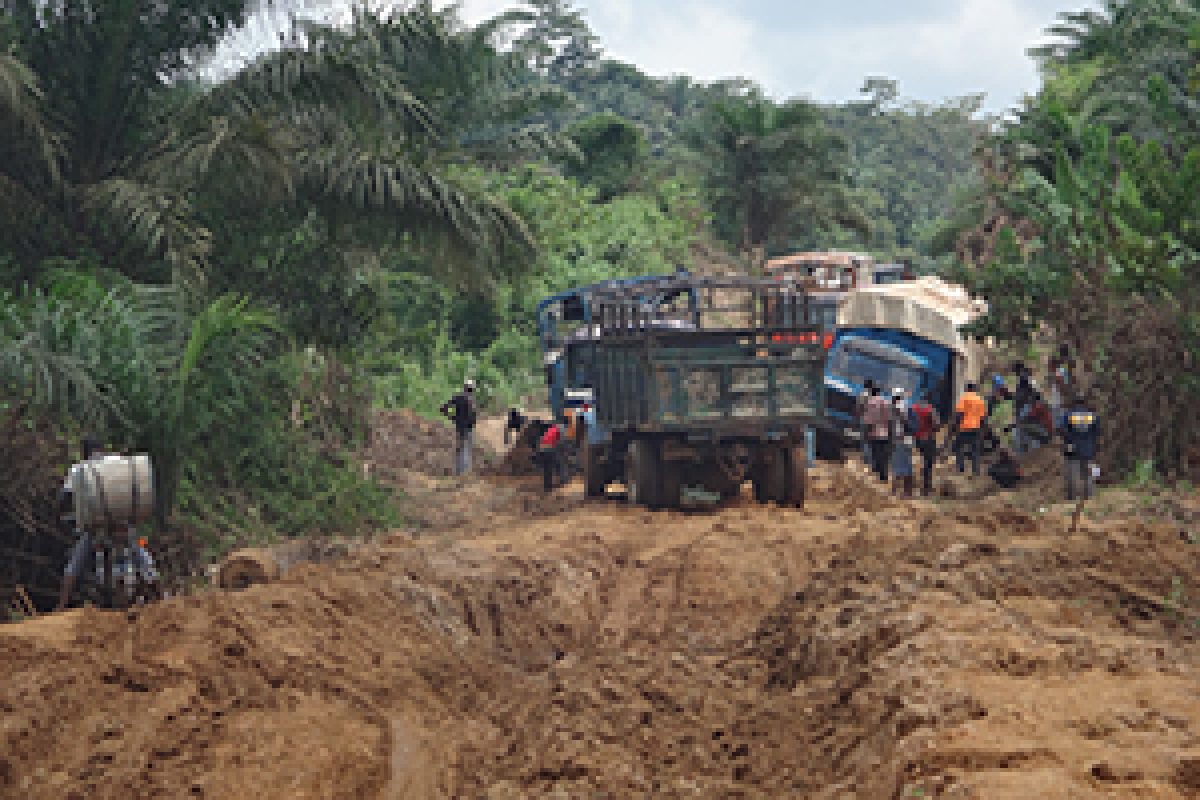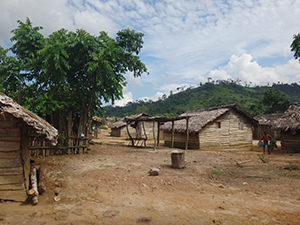Helping Refugees as an ICMC Resettlement Expert in DRC: Andrew’s Story

Andrew Galea Debono is an ICMC Resettlement Deployment Scheme staff member based in Bujumbura where he’s working in collaboration with the United Nations’ High Commissioner for Refugees (UNHCR). Like many other ICMC experts (called “deployees”) assigned to 60 UNHCR offices worldwide, he’s in charge of identifying vulnerable refugees who are eligible for resettlement to a third country. In this piece, he tells us about his incredible experience working in the Democratic Republic of the Congo.
When I arrived in Kinshasa, hardly any resettlement work had taken place in the country since 2012. It was time to kick-start the resettlement program with the help of a deployee from another organization and a Protection Associate who could offer some hours per week to support our resettlement work. This was quite a task for such a small team, considering that the Democratic Republic of Congo (DRC) is the second biggest country in Africa with approximately 380,000 refugees seeking protection from their countries of origin.
Our first task was to process the cases of a protracted caseload of refugees from the neighboring Republic of Congo. Those people had been stuck in and around a refugee camp for almost 19 years. They faced widespread discrimination despite being from the same ethnic group of the local population and speaking a very similar language. Their living conditions were tough since UNHCR had pulled out from the camp a few years earlier. Political tensions between the two countries and the expulsions of a number of DRC citizens from Brazzaville caused major tensions between the locals and the refugee community.
Given that the closest UNHCR office is in Kinshasa, interviewing this group of refugees meant driving for a number of hours to Mbanza Ngungu, an old colonial town surrounded by the green hills of the Bas Congo region, 170 km away from the capital. A local religious community provided us with a room where I could conduct the interviews over the period of two weeks every month.
Whilst in Mbanza Ngungu, I came in direct contact with the refugee and local population. When I finished my interviews before sunset, I often took a walk in the surrounding countryside and was struck by the immense natural beauty of the region. This was a big change from Kinshasa, a massive and hectic city where our regional office is based. When back in Kinshasa, I would write and submit the applications for expedited resettlement while also carrying out all relevant administrative and strategic work together with my supervisor, the Senior Regional Protection Officer.

An important part of my job in DRC was also to train local UNHCR and partner staff to identify and refer cases of vulnerable people for resettlement. The idea was to start receiving referrals from around the country before the protracted caseload from the Republic of Congo was processed. I remember traveling with a colleague to the depths of the Congolese jungle to assess whether another remaining group of 2000 refugees would be eligible for resettlement. After talking to them, it turned out that resettlement would not be a feasible solution for the group. Yet there were still serious protection concerns to deal with.
UNHCR had not provided support to this isolated community for a very long time since they had been operational in the country – approximately 20 years. Even though the refugees had spent considerable time in the country of asylum, they were finding it hard to live in such a hostile environment.
The agricultural fields that UNHCR had bought for the community were no longer fertile and they hardly produced any food. Some girls found themselves resorting to prostitution in order to afford food and, at times, they would become pregnant as a result. Access to healthcare was very challenging, especially for the landmine victims who could not walk the approximately five hours it took to arrive to the closest town. Despite not being able to consider these people for resettlement, we prepared a report for the Protection Team to provide some much-needed assistance, in particular with regards to the possibility of a further agricultural project and access to healthcare.
As ICMC deployees, we have the possibility to work in complicated countries and try our best to make a difference. In DRC, I got the chance to rebuild the entire resettlement program. It was not easy and I had to face many technical and logistical challenges, but it was worth it, given that a number of refugees’ lives could be greatly improved through this work. When I accepted this job, I knew it would be a tough task and, looking back, I think it was a challenge worth accepting. I hope that other resettlement experts will continue to take up such challenges to keep the resettlement program in DRC up and running through the years.
Interested in joining the ICMC-UNHCR Resettlement Deployment Scheme?
Visit the Deployment Scheme portal to view current vacancies and apply today.